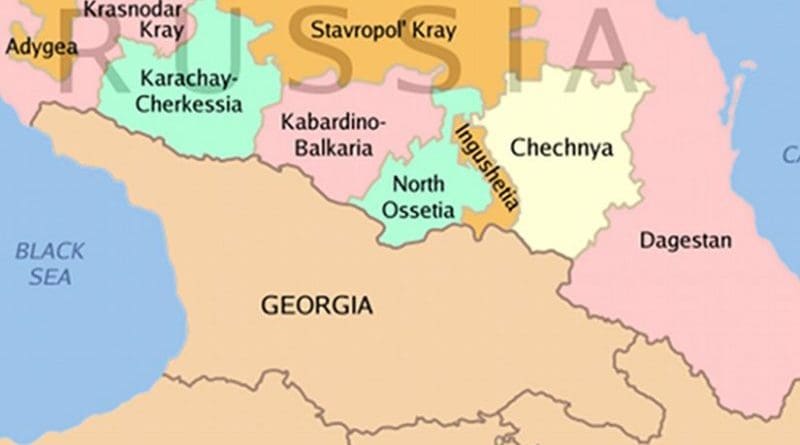Corruption And Repression Behind Islamist Radicalization In North Caucasus – OpEd
By Paul Goble
Widespread corruption and human rights violations by Russian officials and force structures are responsible for the rise of extremism in the North Caucasus, regional experts say; and unless they are addressed, Moscow will face more radicalization and ISIS recruitment regardless of how much force it employs.
Many Western analysts and an increasing number of Russian ones have suggested that Moscow has itself to blame for increasing radicalization in the North Caucasus and that it will not defeat ISIS recruitment efforts there unless it does a better job in combatting corruption and preventing officials from violating the rights of people in the North Caucasus.
Speakers at a conference this past week devoted to terrorist threats, ISIS recruitment, and radicalization were nearly unanimous in suggesting that Moscow’s use of force in the North Caucasus, Vladimir Putin’s preferred modus operandi, is counterproductive in many cases (kavpolit.com/articles/eksperty_o_borbe_s_terrorizmom_bez_drov_pozhara_ne-22041/).
Igor Barinov, the head of the Federal Agency for Nationality Affairs, opened the way for such conclusions by suggesting that in combatting the influence of ISIS, it was absolutely necessary to use teachers, psychologists and religious leaders to reach out to vulnerable groups and counter any ISIS messages being sent in.
Other speakers echoed his position, but as Faina Kachabekova of “Kavkazskaya politika” noted, “none of the government officials for some reason proposes as a prophylactic to the outflow of terrorist organizations to secure citizens normal conditions of existence.” But if they didn’t, experts did.
Nukh Akayev, head of the Center for Strategic Research, Analysis and Audit, said bluntly that “without corruption there wouldn’t be any explosions or terrorist organizations.” It underlies everything, and he added that “it is also one of the main reasons preventing Russian from becoming a great economic power.”
“Yes, of course,” he said, there are many important questions of education, identity of ethnos and of nation.” But corruption is more important than any of them. He said he doubted that Russia could fight corruption effectively because the elites are not prepared to go after corruption among senior officials.
And Sergey Markedonov of the Russian State Humanities University said that “domestic radicalization is occurring not so much because of the Syrian situation as because of problems in the domestic agenda.” Often administrative mistakes make radicalization more possible and especially those involving human rights and their violation.
“When the rights of people are crudely violated” in the course of anti-terrorist operations, then, the specialist on ethnic conflict in the North Caucasus concluded, then “this struggle frequently provokes radical attitudes among the young.”

